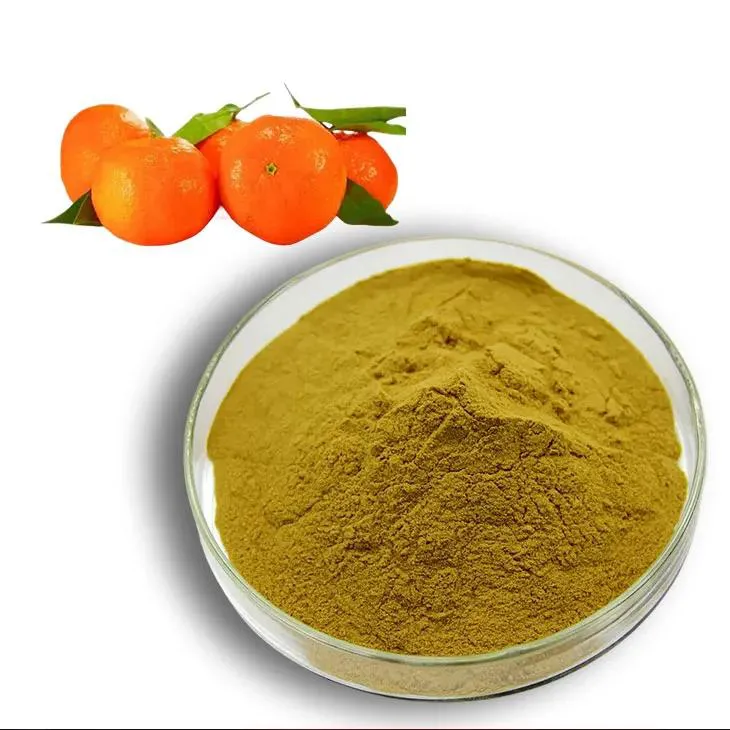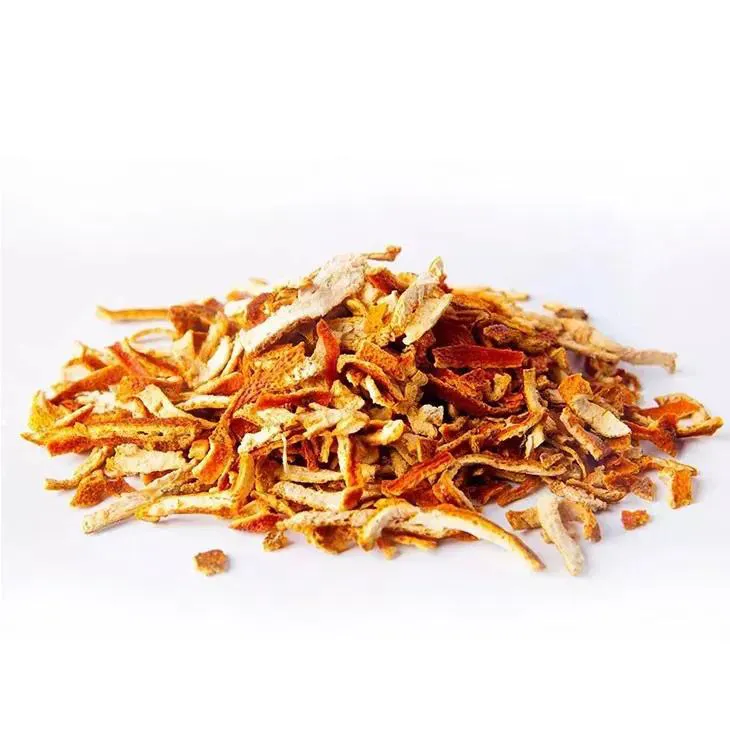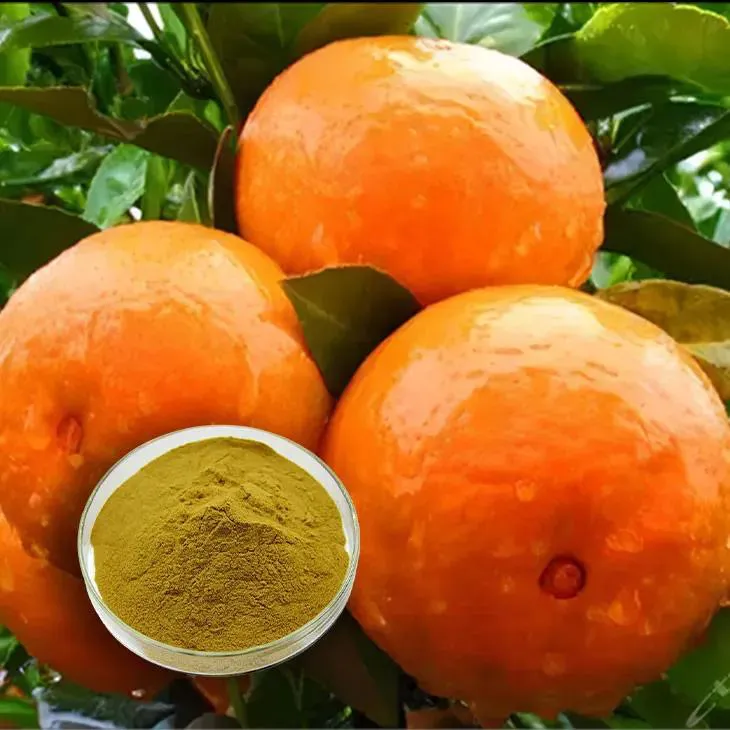- 0086-571-85302990
- sales@greenskybio.com
The best - brand citrus bioflavonoids, gluten - free.
2024-11-30

1. Introduction
Citrus bioflavonoids have gained significant attention in the field of health and wellness. These natural compounds, which are gluten - free, offer a plethora of potential health benefits. As more people are becoming health - conscious and are also following gluten - free diets for various reasons, the best - brand Citrus bioflavonoids are emerging as a popular choice.

2. What are Citrus bioflavonoids?
Citrus bioflavonoids are a group of plant - based compounds found in citrus fruits such as oranges, lemons, and grapefruits. They are responsible for the colors in the peels, rinds, and pulp of these fruits. There are several types of citrus bioflavonoids, including Hesperidin, naringenin, and rutin.
2.1. Health Benefits
- Antioxidant Properties: Citrus bioflavonoids act as antioxidants in the body. They help to neutralize free radicals, which are unstable molecules that can damage cells and contribute to various diseases such as cancer, heart disease, and neurodegenerative disorders. - Immune System Support: These compounds can enhance the immune system. They stimulate the production of white blood cells, which play a crucial role in fighting off infections. - Anti - Inflammatory Effects: Citrus bioflavonoids have anti - inflammatory properties. They can reduce inflammation in the body, which is associated with many chronic diseases.

3. The Significance of Gluten - Free
Gluten is a protein found in wheat, barley, and rye. For some individuals, consuming gluten can lead to various health problems. People with celiac disease, an autoimmune disorder, have an adverse reaction to gluten. Even those without celiac disease may experience gluten sensitivity. Gluten - free citrus bioflavonoids are a great option for those who need to avoid gluten. This makes them suitable for a wider range of consumers, including those with gluten - related disorders and those who simply prefer a gluten - free diet for general health reasons.

4. Production Process of Citrus Bioflavonoids
4.1. Source of Raw Materials
The production of high - quality citrus bioflavonoids starts with the selection of the right raw materials. Citrus fruits are carefully sourced from reliable orchards. The fruits should be of high quality, free from pesticides and other contaminants. Oranges are one of the most common sources, but lemons and grapefruits are also used depending on the specific bioflavonoid requirements.
4.2. Extraction Methods
- Solvent Extraction: One of the traditional methods is solvent extraction. In this process, solvents such as ethanol or acetone are used to extract the bioflavonoids from the citrus fruits. However, this method requires careful handling to ensure that no solvent residues remain in the final product. - Supercritical Fluid Extraction: This is a more advanced method. Supercritical carbon dioxide is used as the extraction medium. It offers several advantages, including better selectivity, less degradation of the bioflavonoids, and no solvent residues. This method is becoming more popular in the production of high - quality citrus bioflavonoids.
4.3. Purification and Concentration
After extraction, the bioflavonoids need to be purified and concentrated. This involves removing impurities such as sugars, acids, and other non - bioflavonoid components. Chromatography techniques are often used for purification. The concentrated bioflavonoids are then dried to form a powder or other suitable forms for packaging.5. Criteria for the Best - Brand Product
5.1. Purity and Quality
A best - brand citrus bioflavonoid product should have high purity. This means that it contains a high concentration of the desired bioflavonoids with minimal impurities. Quality control measures should be in place during the production process to ensure that the product meets the required standards.
5.2. Source Transparency
The brand should be transparent about the source of the citrus fruits used in the production. Consumers should be able to know where the fruits are sourced from, whether they are organically grown, and if any pesticides or other chemicals were used during cultivation.
5.3. Third - Party Testing
Reputable brands often have their products tested by third - party laboratories. This provides an independent verification of the product's quality, purity, and safety. Third - party testing can also help to build consumer trust.
5.4. Packaging and Shelf - Life
The packaging of the citrus bioflavonoid product should be designed to protect the product from moisture, light, and air, which can degrade the bioflavonoids over time. A long shelf - life is also desirable, but it should not be achieved at the expense of product quality.6. Potential Side Effects
While citrus bioflavonoids are generally considered safe for most people, there can be some potential side effects in certain cases.
6.1. Allergic Reactions
Some individuals may be allergic to citrus fruits. In such cases, they may also be allergic to citrus bioflavonoids. Symptoms of an allergic reaction can include itching, hives, swelling, and difficulty breathing.
6.2. Interaction with Medications
Citrus bioflavonoids may interact with certain medications. For example, they can affect the metabolism of some drugs in the liver. It is important for individuals taking medications to consult their doctor before starting to take citrus bioflavonoid supplements.7. Incorporating Gluten - Free Citrus Bioflavonoids into Your Daily Diet
7.1. Dietary Supplements
One of the easiest ways to incorporate citrus bioflavonoids into your diet is through dietary supplements. These are available in the form of capsules, tablets, or powders. However, it is important to choose a high - quality supplement from a reputable brand.
7.2. Citrus Juices and Extracts
Drinking fresh citrus juices or using citrus extracts in cooking can also provide a source of bioflavonoids. Orange juice, lemonade, and grapefruit juice are rich in bioflavonoids. However, it is important to note that some commercial juices may have added sugars or other additives, so it is advisable to choose natural, unsweetened juices.
7.3. Incorporating Citrus Fruits in Meals
Adding citrus fruits to your meals can be a delicious and healthy way to get bioflavonoids. For example, you can add slices of oranges or grapefruit to your breakfast cereal, use lemon zest in baking, or make a citrus - based salad dressing.8. Conclusion
Gluten - free citrus bioflavonoids are a valuable addition to a healthy diet. They offer numerous health benefits, from antioxidant and immune - boosting properties to anti - inflammatory effects. When choosing a best - brand product, consumers should consider factors such as purity, source transparency, and third - party testing. While generally safe, it is important to be aware of potential side effects, especially for those with allergies or taking medications. Incorporating citrus bioflavonoids into your daily diet can be easily achieved through supplements, juices, or by including citrus fruits in your meals.
FAQ:
What are citrus bioflavonoids?
Citrus bioflavonoids are natural compounds found in citrus fruits. They have antioxidant properties and can contribute to overall health, such as supporting the immune system and maintaining healthy blood vessels.
Why is the gluten - free aspect important?
For individuals with gluten sensitivities or celiac disease, consuming gluten can cause adverse reactions. Gluten - free citrus bioflavonoids ensure that these people can also benefit from the positive effects of bioflavonoids without the risk of gluten - related health issues.
How can one identify a best - brand citrus bioflavonoid product?
To identify a best - brand product, look for factors like high - quality sourcing of citrus fruits, strict manufacturing processes to preserve the bioflavonoid content, third - party testing for purity and potency, and positive customer reviews regarding effectiveness and safety.
What are the potential side effects of citrus bioflavonoids?
In general, when taken in normal doses, citrus bioflavonoids are well - tolerated. However, in some cases, high doses may cause mild side effects such as stomach upset or headaches. It is always advisable to follow the recommended dosage instructions.
How can gluten - free citrus bioflavonoids be incorporated into daily diet?
They can be incorporated in various ways. For example, you can take them as supplements following the product instructions. Also, consuming more citrus fruits naturally rich in bioflavonoids, like oranges and lemons, in your diet can be a good way if you don't have a gluten - related concern. If you are using bioflavonoid - rich extracts, they can be added to smoothies or used in cooking in moderation.
Related literature
- The Role of Citrus Bioflavonoids in Health and Disease"
- "Gluten - Free Diets: Beyond the Basics"
- "Evaluating the Quality of Bioflavonoid Supplements"
- ▶ Hesperidin
- ▶ citrus bioflavonoids
- ▶ plant extract
- ▶ lycopene
- ▶ Diosmin
- ▶ Grape seed extract
- ▶ Sea buckthorn Juice Powder
- ▶ Beetroot powder
- ▶ Hops Extract
- ▶ Artichoke Extract
- ▶ Reishi mushroom extract
- ▶ Astaxanthin
- ▶ Green Tea Extract
- ▶ Curcumin Extract
- ▶ Horse Chestnut Extract
- ▶ Other Problems
- ▶ Boswellia Serrata Extract
- ▶ Resveratrol Extract
- ▶ Marigold Extract
- ▶ Grape Leaf Extract
- ▶ blog3
- ▶ blog4
-
Wholesale Echinacea Extract Suppliers.
2024-11-30
-
100% Pure Organic L - Tyrosine
2024-11-30
-
100% Organic Purple Sweet Potato Extract.
2024-11-30
-
The best banana juice powder in 2024.
2024-11-30
-
Apricot powder supplier.
2024-11-30
-
Giant Knotweed Extract
2024-11-30
-
Tamarind extract powder
2024-11-30
-
Jujube Extract
2024-11-30
-
Oyster Mushroom Extract Powder
2024-11-30
-
Boswellia Serrata Extract
2024-11-30
-
Andrographis Paniculata Extract Powder
2024-11-30
-
Genistein
2024-11-30
-
Licorice Root Extract Powder
2024-11-30
-
Saw Palmetto Extract
2024-11-30
-
Sea buckthorn Juice Powder
2024-11-30





















